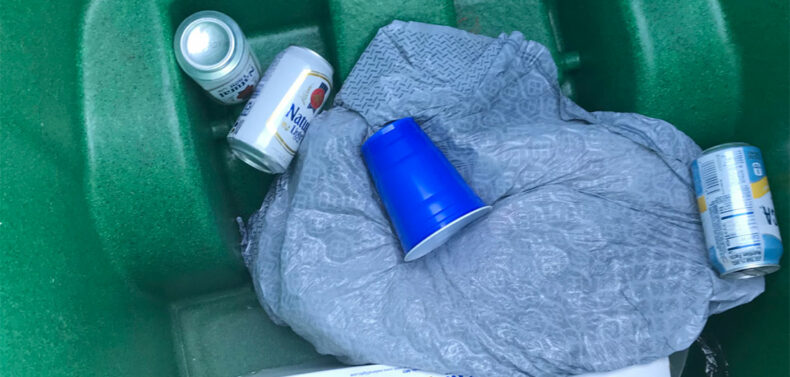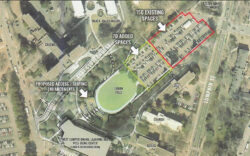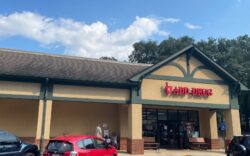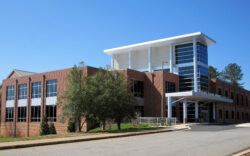The Institute for Georgia Environmental Leadership isn’t a household name, but there are alumni of the institute all over the state, working in all sorts of fields, from biology and hydrology to solid waste, water planning and sustainable forestry. The IGELians, as they like to call themselves, met in Athens last week at Creature Comforts for an evening of socializing, networking and a program centered on the question “Does everything end up in the landfill?” moderated by Suki Jannsen, director of the Athens-Clarke County Solid Waste Department.
The questions were answered by a panel of professionals, including Josh Schmidt of Green Rock Strategies; Lena Chambless, program manager of the Recovered Materials and Abatement Program at the Georgia Environmental Protection Division; Taylor Maddalene, a PhD student in environmental engineering who works for UGA professor Jenna Jambeck researching plastic waste in oceans; and Denise Plemmons, ACC’s waste reduction coordinator.
Here are some takeaways:
• Those little triangles on plastic containers with numbers in them are a good example of greenwashing, lulling consumers into thinking every piece of plastic is recyclable. Maybe someone, somewhere, in a parallel universe is recycling a plastic resin or polymer whose name you can’t pronounce, but not on planet Earth.
• Recycling is not the solution. It’s reuse, reduce and then recycle. We can’t recycle ourselves out of the garbage dilemma because there’s just too much stuff in the waste stream. Instead of recycling, worry about buying things you might not need and then discarding them after a few months or even years.
• Don’t put paper plates, letters, junk mail or any other paper product in your backyard compost bin. Your decaying vegetable scraps and leaves can’t get hot enough to break down the paper, so you will end up with a disgusting mess. Athens-Clarke County has a commercial composting operation that can handle most anything and that produces two kinds of compost—biosolid compost and food scrap compost. Both are for sale at the ACC landfill. You want the food scrap compost for your backyard garden.
• Some communities—looking at you, Gwinnett County—have stopped accepting glass in their recycling operation. Glass is infinitely recyclable, but because glass breaks into sharp bits, it’s difficult to handle. Moreover, it’s heavy, and trucking it to a recycling facility is expensive. So, because Georgia folks aren’t producing enough used glass to satisfy demand, three of the country’s largest glass manufacturers—yep, they’re here in Georgia—import glass from faraway Michigan for their operation.
• Contamination is a constant problem in Athens-Clarke County’s recycling operation. Someone’s recycling bin may include bits of rotten roast beef. Or the recycler may put their empty beer cans in a plastic bag before tossing it in a recycling bin.
• Many officials in Georgia’s many local governments don’t understand that composting operations aren’t odiferous. What does smell is food rotting in a landfill, which creates methane.
• The Solid Waste Association of North America, the leading professional organization in the field of solid waste, is encouraging managers to “elevate the profession.” Janssen said she values her employees. If not for the friendly and efficient folks driving the sanitation trucks, we would be in big trouble.
• Researchers in Athens are gathering data on plastic grocery bags. Stay tuned!
Like what you just read? Support Flagpole by making a donation today. Every dollar you give helps fund our ongoing mission to provide Athens with quality, independent journalism.










